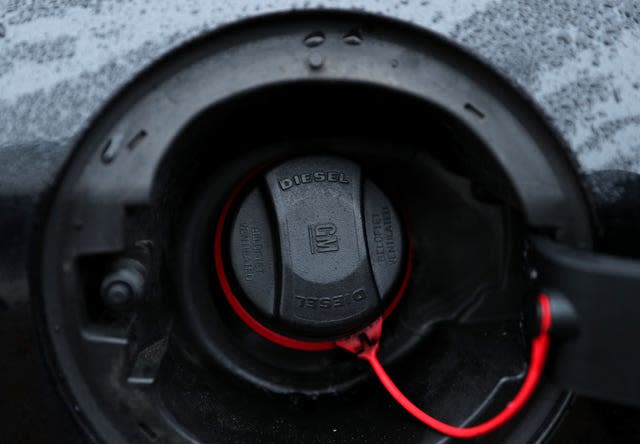Think tank calls for drivers to be taxed on a per-mile basis
Drivers should be charged on a per-mile basis in a major overhaul of the UK’s motoring taxation system, according to a new report.
A pay as you drive scheme in the UK should initially apply to zero emission vehicles (ZEVs) such as electric cars before being expanded to cover all vehicles, centre-right think tank the Centre for Policy Studies said.
This would replace the “outdated and onerous tax system” of fuel duty and vehicle excise duty (VED), the document stated.
The Future of Driving report warned that the Treasury faces a “£25 billion fiscal black hole” as annual receipts from fuel duty dwindle, with motorists switching from petrol and diesel cars to electric models.
Under the plan to charge motorists on a per-mile basis, drivers of ZEVs would pay “significantly less” than those behind the wheel of petrol and diesel models to avoid “denting the take-up” of greener vehicles.
All vehicles would receive an annual allocation of tax-free miles, with more for those owned in remote areas with fewer transport alternatives.
The Government could announce that the new system will apply to all ZEVs from a certain year “towards the end of the decade”, according to the report.
It acknowledged that some drivers are “wary of the state tracking their movements constantly”, and suggested charges should be paid by a monthly direct debit, with no recording of where and when road users drove.
ZEV drivers who took part in focus groups conducted for the report “instinctively understood that the current tax-free status of their driving could not continue indefinitely”, the Centre for Policy Studies said.
The report added: “Petrol and diesel drivers rightly pointed out that it was unfair that EV drivers today contributed nothing to the upkeep of the roads, despite causing significant damage given their weight.


Petrol and diesel drivers pointed out that it was unfair that EV drivers contribute nothing to the upkeep of the roads, the report said (Andrew Matthews/PA)
“Thus, while no-one likes to have their taxes put up, there was a begrudging consensus that the current system would have to adapt to the new future of ZEVs, and that those currently driving an electric car would have to stump up down the road.”
Electric vehicles are generally heavier than traditionally-fuelled vehicles due to the added weight of their batteries.
ZEV drivers do not pay fuel duty or VED, but road maintenance is funded by national and local taxes, rather than motoring taxes.
Dillon Smith, Centre for Policy Studies energy and environment researcher and report co-author, said the recommendations “can lead to fairer, better and more efficient taxation while tackling congestion and improving air quality in our big cities”.
Tom Clougherty, Centre for Policy Studies research director and co-author, added: “We shouldn’t replicate the old, punitive tax system, but it is still important that all drivers pay a fair amount for the roads they use.”
Steve Gooding, director of the RAC Foundation, said Chancellor Jeremy Hunt has to “walk a tightrope” as rushing to replace lost fuel duty income “risks stifling the green transition Government is desperate to promote”.
He added: “Given the imperative to get to net zero carbon, and the political sensitivity surrounding any changes to road taxes, the Chancellor might well conclude that losing a few billion pounds a year is a price worth paying to save the planet.”
A Treasury spokesperson said: “We are making sure that motoring tax revenues keep pace with the switch to electric vehicles, whilst keeping it affordable for consumers, and have no plans to introduce road pricing.
“With the EV transition accelerating, it’s right that all drivers start to make a fair tax contribution through changes to Vehicle Excise Duty but we continue to support the electric vehicle revolution through over £2.5 billion in incentives.”